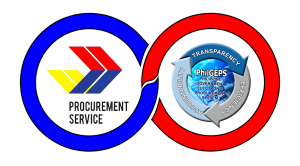As a business owner, you’re likely to have undoubtedly dealt with clients who declined to pay for products and services that were provided. Typically, you would try to get in touch with them regarding the unpaid bill. The issue arises when you make several unsuccessful attempts to contact the client, and they appear to have disappeared from the visage of the planet. Hiring a skip tracer is your greatest bet in locating this non-paying client in a circumstance involving such. But before you get going, here are some of the things you ought to know about skip tracing in the Philippines.

What is Skip Tracing in the Philippines?
The process of finding a borrower who has “skipped” payments is known as “skip tracing,” and skip tracers are particularly useful in situations where the borrower has not returned visits or communications. Skip tracing in the Philippines is frequently utilized by debt collection agencies as well as by private investigation firms, attorneys, law enforcement officials, the press, and security brokers.
Is Skip Tracing and Batch Skip Tracing the same?
The technique of compiling a variety of basic contact details for company-related uses is known as batch (or bulk) skip tracing. Property professionals frequently utilize it when they require certain details (phone numbers, email addresses, and residences) for an extensive amount of possible dealers or purchasers.
How does Skip Tracing work?
Examining each of the skipper’s public assets independently when doing an in-depth skip trace is necessary. It comes down to electronically accessing the information sources and having them delivered for data compilation solutions. This enables those services to compile all the information you require from each of these individual searches into a single report, which is available a few minutes after your primary search results appear.
- Listings of pre-foreclosures
- Lists of tax liens
- Ownership of property
- Search online and social media
- Records from civil and criminal courts, including accounts of public arrests
Who uses Skip Tracing in the Philippines?
Skip tracing is used by multiple organizations to locate individuals. It is used by real estate agents to track down property owners and occasionally even financiers who could be interested in a given property. Solutions for collecting debts also depend on skip tracing. Security experts also use it to determine dubious people who occasionally only submit part of their ID.
What type of Information do Skip Tracers Have Access to?
Skip tracers have the utilization of data that the general public does not. They can look up call logs to find out who the person of interest is contacting and previous transactions on debit and credit card transactions to confirm their whereabouts.
In addition, the skip tracer can discover if the subject of the investigation recently opened any new financial accounts using an alternate address. Utility tracks, employment inquiries, registrations for rentals, and requests to establish account openings are additional important data sources.
Do Skip Tracers Contact Interview Personal Relationships?
Skip tracers will talk to those who are acquainted with the person of interest in order to get any relevant data, along with conducting online searches on them. Occasionally, former colleagues or peers can offer rudimentary details that could be used to locate relatives or close companions who may have more specific knowledge.
Is Skip Tracing Legal in the Philippines?
In broad terms, skip tracing in the Philippines is legal only if you are a licensed professional investigator. However, it is entirely legal to employ skip tracing in the Philippines for things like lead generation or finding persons who owe money, provided that you are contracting the company to do so and aren’t executing skip tracing on behalf of another.
How Can I Acquire the Services of a Skip Tracer for my Business?
It is frequently less expensive to use a third-party collection company with a skip trace division than to hire a private skip tracer. While most freelance skip tracers levy an hourly fee, certain collecting firms will skip trace and collect on a contingency fee basis, which means there isn’t any cost should no money be retrieved.

How can you identify if your business needs Skip Tracing’s services?
Skip tracing may be required to locate an unpaid client who has cut off communication. In certain cases, you can finish a skip trace entirely by yourself; in other cases, a more skilled skip tracer can finish the work.
What is Discreet Checking?
A component of obtaining intelligence without revealing its source, nature, or intent is discreet checking.
Business Strategies to Ensure Clients Pay On-time
Clearly and openly state the terms of payment.
The foundation of your charging framework is a set of terms for payments that are both clear and open. Make sure your clients are aware of what to anticipate from you and when. The repayment terms could cause miscommunication at best and, at worst, a broken relationship if you’re not careful.
Simplify the procedure of processing invoices.
A well-written invoice has the ability to do the labor-intensive work for you, which is its beauty. Consider it an affirmation of the most crucial provisions of your agreement. To ensure there is no confusion concerning what the consumer has been invoiced for, detail apart the assignments, hours, and rates.
Encourage and offer customers the option to set up automatic payments.
The majority of your clients aren’t deliberately ignoring your invoices; instead, they have a dozen other things on their minds. Recalling to check in on a particular day each month or at the conclusion of each assignment might be challenging. For your clients, set up auto-pay so that money is taken out of their bank accounts on a regular basis. They will not have to deal with the inconvenience of entering data in each month, and you will avoid the difficult discussion about money with an important business.
Incorporate prospects into a retainer contract.
Consider transferring your recurrent clients to a retainer agreement if they are customers who need services or goods on a monthly, quarterly, or annual basis. This is an arrangement wherein your clients pay you in advance for the services you will render over a predetermined length of time.
Develop enduring professional bonds with your clients.
Positive, fulfilling client relationships are the cornerstone of effective, timely payments. Remind your clientele that they are far more than a name or number. This entails being accessible to respond to their inquiries, handle their worries, and extend assistance as required. Whether via email or phone calls, make it simple for them to contact you.
B2B Transactions
Time is money, and timely payment is essential to the effective operation of your organization. Every client is diverse and has distinct aspirations. Spend time getting to know their needs and coming up with original ideas to assist them in achieving their objectives. Working with a digitalized procurement platform for your B2B transactions can assist in this process.
Fortunately, Shoppable Business provides the ideal option for automated payments and digital procurement. In this manner, you might be able to avoid purchasing skip tracing for your Philippine company.
How Shoppable Business Helps Buyers and Sellers
- One Supplier of Record
- Free RFQ Service
- Official Sales Invoice
- 30-Day Terms
- Authentic Products
- 35+ Categories

It may be time to hire a collection firm that uses skip tracing if a client who owes you a payment isn’t paying you. Skip tracers offer you confidence if several attempts to retrieve a debt owed to you have been unsuccessful and you are unable to locate the debtor. An organization that collects debts and provides skip tracing in the Philippines can be the best fit for you if you’re looking to retrieve these payments.









